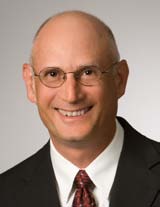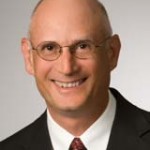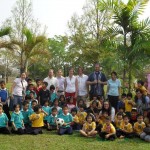Personalized medicine: It sounds like something you would read about in a novel or see in a movie. But recent scientific advances are leading to the identification of a growing number of genes implicated in diseases like cancer, heart disease, diabetes and obesity.
In this issue of InterSections, we explore the role of pharmacists in the emerging sciences. More and more pharmacists are becoming deeply involved in pharmacogenomics, gene therapy, biosimilar drug therapy and nanomedicine, among others. As we see in “The Next Frontier: Pharmacy and the Emerging Sciences,” this is not a field for people who thrive on instant gratification. That’s because the payoff—if there is a payoff—usually doesn’t arrive for years, maybe decades, after the work begins. But the rewards, in terms of better identification, prevention and treatment, are enormous.
Pharmacists in hospitals and health systems all over the country are re-evaluating their practice models to meet the needs of their patient populations. At Children’s Hospital Central California (CHCC) in Madera, Pharmacy Service Director Richard Sakai, Pharm.D., FASHP, FCSHP, decided to institute a decentralized pharmacy model to help increase patient safety and allow pharmacists to apply and hone their clinical skills.
Dr. Sakai, though, wanted to avoid putting his pharmacists in satellite pharmacies that can isolate practitioners. So he persuaded the nursing and medical staff to provide pharmacists with space on the units themselves. His staff members join team rounds and are supported in their clinical decision-making by a high-end robot in the central pharmacy.
Pharmacists are making an impact on patient care in a different way at University of Wisconsin Health in Madison. The pharmacy team there established an anticoagulation stewardship program (ASP) that has been responsible for impressive systemwide improvements in the numbers of patients who suffer postoperative venous thromboembolisms (VTEs).
The program is designed to ensure that at least 90 percent of inpatients receive appropriate VTE prophylaxis within 24 hours of admission, and to reduce by at least 25 percent the observed-to-expected rate of preventable postoperative VTEs. As you’ll see in the story, “UW Health Goes the Extra Mile to Prevent VTEs,” the numbers bear out the success of this exciting program.
Finally, students at the University of Utah College of Pharmacy are finding novel challenges through a clerkship program that sends them halfway across the world to learn about health care in a Third World country. The university’s Thailand clerkship, now in its 16th year, features a packed itinerary that includes seminars on leprosy, malaria, avian influenza, dengue fever and tuberculosis, among others.
According to students who have participated, the clerkship is an eye-opening experience. Justin Palfreyman, a pharmacy resident at McKay Dee Hospital in Ogden, Utah, said he was caught off guard by the magnitude of the differences between the Thai and U.S. health systems. The trip “definitely made me more appreciative of our health care system,” he said. “Even though it has many flaws, I realized that things could be much worse.”
May we all come to appreciate the many advantages of working as health care providers in the United States, while striving to improve care where we can. This issue of InterSections surely demonstrates how we can do that on many fronts. Enjoy!
Stan Kent, M.S., FASHP
Editor’s Note: ASHP President Stan Kent, M.S., FASHP, is assistant vice president, NorthShore University Health System, Evanston, Ill.








 If you want to contribute tutorials, news or other stuff please contact us. We pay 150 for each approved article.
If you want to contribute tutorials, news or other stuff please contact us. We pay 150 for each approved article. Consectetur adipisicing elit. Sed do eiusmod tempor incididunt ut labore.
Consectetur adipisicing elit. Sed do eiusmod tempor incididunt ut labore. This site uses valid HTML and CSS. All content Copyright © 2010 Newscast, Inc
This site uses valid HTML and CSS. All content Copyright © 2010 Newscast, Inc If you like what we do, please don't hestitate and subscribe to our
If you like what we do, please don't hestitate and subscribe to our